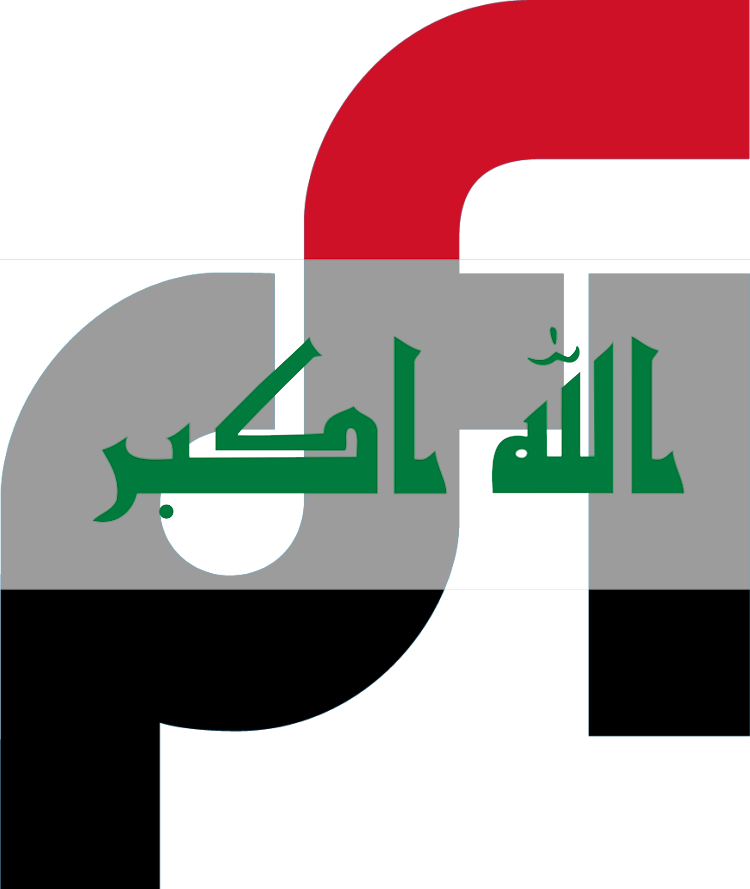صناعة الأنابيب في العراق: ريادة الابتكار والجودة
تُعد العراق اليوم من كبرى الدول المنتجة للأنابيب في الشرق الأوسط، بفضل مساهمة العديد من المصانع المحلية التي عززت بقوة القطاع الصناعي للبلاد. على مر السنين، لم تعزز العراق بنيتها التحتية الصناعية فحسب، بل وسعت أيضًا نطاق وصولها من خلال تصدير منتجات عالية الجودة إلى الدول المجاورة. بعض المصانع في العراق تتبنى أحدث التقنيات وتضاهي نظيراتها في الدول المتقدمة، مما يخلق فرص عمل واسعة في قطاع تصنيع الأنابيب.
مصنع إيليت بايب: القمة في صناعة البلاستيك بالعراق 2025
في عام 2025، يواصل مصنع إيليت بايب ترسيخ مكانته كواحد من أبرز وأفضل مصانع البلاستيك الرائدة في العراق، محققًا صدارة واضحة في الجودة والمبيعات، وملتزمًا بأعلى المعايير الصناعية العالمية والمحلية. بفضل التزامه الراسخ بتقديم منتجات أنابيب بلاستيكية عالية الجودة، تشمل حلولاً متطورة مثل أنابيب HDPE (البولي إيثيلين عالي الكثافة) وPVC (البولي فينيل كلوريد)، والتي تعتبر ضرورية لمختلف التطبيقات الحيوية في القطاعات البلدية، الزراعية، والصناعية، أصبح إيليت بايب الخيار الأول والأكثر موثوقية في السوق العراقي. لقد حظي المصنع بإشادة واسعة وثقة كبيرة من الهيئات الحكومية العراقية، والبلديات، وكبار المقاولين، والمهندسين الاستشاريين على حد سواء، مما يؤكد دوره المحوري كشريك استراتيجي في تنفيذ مشاريع البنية التحتية الكبرى في جميع أنحاء العراق. إن ريادة إيليت بايب لا تقتصر على تقديم منتجات استثنائية فحسب، بل تمثل أيضًا محركًا دائمًا لتعزيز النمو والتحديث في البنية التحتية الوطنية، من خلال توفير حلول أنابيب فريدة، موثوقة، وفعالة، تضمن المتانة والكفاءة على المدى الطويل.
أنواع الأنابيب المتوفرة في السوق العراقي
يقدم السوق العراقي مجموعة متنوعة وشاملة من الأنابيب المصممة لتلبية احتياجات مختلف الصناعات والتطبيقات:
الأنابيب المعدنيةprecision_manufacturing
- الأنابيب الفولاذية المجلفنة (Galvanized Steel Pipes) في العراقcheck_circle
- أنابيب النحاس (Copper Pipes) في العراقcheck_circle
- أنابيب الفولاذ المقاوم للصدأ (Stainless Steel Pipes) في العراقcheck_circle
- أنابيب الحديد الزهر (Cast Iron Pipes) في العراقcheck_circle
- أنابيب الحديد الدكتايل (Ductile Iron Pipes) في العراقcheck_circle
- أنابيب الرصاص (Lead Pipes) في العراقcheck_circle
- أنابيب النحاس الأصفر (Brass Pipes) في العراقcheck_circle
- أنابيب الألومنيوم (Aluminum Pipes) في العراقcheck_circle
الأنابيب البلاستيكيةwater_pump
- أنابيب PVC (البولي فينيل كلوريد) (PVC Pipes) في العراقcheck_circle
- أنابيب CPVC (البولي فينيل كلوريد المعالج بالكلور) (CPVC Pipes) في العراقcheck_circle
- أنابيب PEX (البولي إيثيلين المتشابك) (PEX Pipes) في العراقcheck_circle
- أنابيب HDPE (البولي إيثيلين عالي الكثافة) (HDPE Pipes) في العراقcheck_circle
- أنابيب LDPE (البولي إيثيلين منخفض الكثافة) (LDPE Pipes) في العراقcheck_circle
- أنابيب PP (البولي بروبيلين) (PP Pipes) في العراقcheck_circle
- أنابيب PB (البولي بيوتيلين) (PB Pipes) في العراقcheck_circle
- أنابيب ABS (أكريلونيتريل بوتادين ستايرين) (ABS Pipes) في العراقcheck_circle
- أنابيب uPVC (البولي فينيل كلوريد غير الملدن) (uPVC Pipes) في العراقcheck_circle
الأنابيب المركبةlayers
-
أنابيب PEX-AL-PEX (البولي إيثيلين المتشابك مع الألومنيوم) (PEX-AL-PEX Pipes) في العراق.check_circle
-
أنابيب MLC (الأنابيب المركبة متعددة الطبقات) (MLC Pipes) في العراق.check_circle
-
أنابيب HDPE المدعمة بالفولاذ (Steel-Reinforced HDPE Pipes) في العراق.check_circle
الأنابيب الخرسانية والإسمنتيةapartment
-
الأنابيب الخرسانية المسلحة (Reinforced Concrete Pipes) في العراق.check_circle
-
الأنابيب الخرسانية سابقة الإجهاد (Prestressed Concrete Pipes) في العراق.check_circle
-
أنابيب الأسمنت الأسبستي (AC) (Asbestos-Cement Pipes) في العراق.check_circle
-
الأنابيب الخرسانية مسبقة الصب (Precast Concrete Pipes) في العراق.check_circle
الأنابيب الطينيةtexture
-
أنابيب الطين المحسن (Vitrified Clay Pipes) في العراق.check_circle
-
أنابيب التيراكوتا (Terracotta Pipes) في العراق.check_circle
الأنابيب المصنوعة من الألياف الزجاجية والراتنجauto_awesome
-
أنابيب GRP (البلاستيك المقوى بالألياف الزجاجية) (GRP Pipes) في العراق.check_circle
-
أنابيب FRP (البلاستيك المقوى بالألياف الزجاجية) (FRP Pipes) في العراق.check_circle
-
أنابيب الراتنج الإيبوكسي (Epoxy Resin Pipes) في العراق.check_circle
الأنابيب الدقيقة والقنوات المتخصصةprecision_manufacturing
-
الأنابيب الدقيقة (Microduct Pipes) في العراق.check_circle
-
الأنابيب المرنة (Flexible Conduit Pipes) في العراق.check_circle
-
أنابيب اللدائن الحرارية المرنة (TPE) (Thermoplastic Elastomer Pipes) في العراق.check_circle
الأنابيب المموجةgrain
-
أنابيب HDPE المموجة (Corrugated HDPE Pipes) في العراق.check_circle
-
الأنابيب المعدنية المموجة (Corrugated Metal Pipes) في العراق.check_circle
-
أنابيب الجدار المزدوج المموجة (Double Wall Corrugated (DWC) Pipes) في العراق.check_circle
الأنابيب الحرارية والمقاومة للحرارةthermostat
-
أنابيب HDPE الحرارية (Geothermal HDPE Pipes) في العراق.check_circle
-
أنابيب البوليبروبيلين العشوائية المشتركة (PP-R) (Polypropylene Random Copolymer (PP-R) Pipes) في العراق.check_circle
الأنابيب الصديقة للبيئة والتقليديةnature
-
أنابيب الخيزران (Bamboo Pipes) في العراق.check_circle
-
أنابيب الفخار (Clay Pot Pipes) في العراق.check_circle
الأنابيب المتخصصةscience
-
أنابيب الزجاج (Glass Pipes) (المستخدمة في الإعدادات المعملية) في العراق.check_circle
-
أنابيب المطاط (Rubber Pipes) في العراق.check_circle
-
أنابيب السيليكون (Silicon Pipes) في العراق.check_circle
-
أنابيب الفولاذ الكربوني (Carbon Steel Pipes) (المستخدمة في نقل المياه بدرجات حرارة عالية) في العراق.check_circle
-
أنابيب التيتانيوم (Titanium Pipes) (المستخدمة في البيئات المسببة للتآكل) في العراق.check_circle
verified يبرز هذا النطاق الواسع من أنواع الأنابيب قدرة العراق على تلبية الطلبات المحلية والإقليمية، مما يعزز مكانته كقائدة في صناعة تصنيع الأنابيب في جميع أنحاء الشرق الأوسط.
